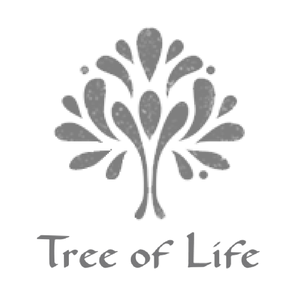"The greatest threat to our planet is the belief that someone else will do it.."
Located at the base of the Himalayan region is the bustling and charismatic town of Dharamsala. The streets are littered with people, cows, monkeys, prayer flags, and yep you guessed it, trash.
Like most regions in India, Dharamsala struggles with waste management with a lack of governmental resources, harming the tranquility of this ancient place. But a non-for-profit group has come to the rescue.

Waste Warriors, founded by Joe Underhill, is on a mission to create a healthier India for both the people and the environment around them, creating ways dispose of trash correctly.
This year we take part in Plastic Free July by highlighting the wonderful work these guys are doing in our homeland, India.

We asked Shashank, a full-time employee at WW a few questions about their efforts in Dharamsala, how they are trying to change mindsets around waste and what they have achieved so far.
Can you tell us a bit about who you are, your role in WW and why you came to be in this company?
Hi I'm Shashank! I am from Karnataka and left my corporate job in the Aero space sector. I’m working for Waste Warriors which is an NGO and looking after the Dharamsala project for the past 1 year.
Can you tell us about what WW does?
WW was started way back in 2012 by an English lady called Jody Underhill. Jody was here in 2009 and by 2012 realized she had to do something for the beautiful mountains because the waste was not managed properly. So, she started cleaning the Triund trail. Every week Jody would carry 250 kg of trash from the top of the trail (around 25-30 bags). Up until 2019, volunteers would clean up the Triund trail every Monday until the pandemic hit.

After 2019, there were some structure changes. Today we are in 7 different locations with around 150 full-time employees. In Dharamsala there are two offices, Dharamsala urban and rural. This is the journey of waste warriors from 2012 to 2022, this is the 10th year of WW in existence.
We get funds from different organizations such as Royal Enfield. There is a CSR rule in India where an average 2% of profit must be donated to a social cause.
Majorly we are into 3 things; Awareness raising (information, communication and education), Operations and Waste Workers upliftment

What about Dharamsala makes a waste program so important?
There are 17 wards in Dharamsala, with the main goal being that waste has to be segregated. The aim is for waste not to be sent to landfill but processed and sent to recycling.
We work with a clean business program in Dharamsala where businesses must meet this criterion; segregate their waste, give information about waste segregation and compost on site. We are working with Dharamsala tourism to incentivize clean businesses.

We are working with schools because we see the students are very important for the country’s future. This includes the Young Warrior’s club where kids from ages 5 to 13 do their own clean-ups. We start raising awareness with the youngsters because behavior change will take time.
Waste management is so important in Dharamsala because the Himalayas are the cradle of the ecosystem for India. The rivers start from these glaciers so if waste is not being handled properly in Dharamsala then cities and states down south will face a lot of problems and already are. There is a landfill in Dharamsala that looks like a mountain. This landfill mixes with the ground water and the water from the glacier, which most people drink causing a lot of diseases. Even the microplastics in the air, you are breathing it and eating it, it’s a silent pandemic.

What does the future look like for WW?
For the next 1 to 2 years we are focusing on strengthening existing programs in our 7 locations. We don’t want to go beyond our resources, instead focusing on these areas where we can make a big difference. In the next 5 years we are open to other regions, with a focus on Himalayan destinations.
What have been the greatest problems in initiating this program?
We have not faced many problems with the communities we work with. There was some initial resistance, but people have been quite accommodating over the past 10 years. We have strong ties with the government and are well known by everyone. Communities want to see their home clean and the government does not have the resources required so people are helpless at times.

You have a lot of quotes and artworks around Dharamsala, what’s your favourite?
Yeah, we use a lot of art to interact with people and gain their attention. A lot of people join and volunteer for our organization after seeing notice boards, artworks and signs. We also use waste from the area to create art.
My favourite quote in WW is “cleaning today for a better tomorrow”.

To follow along with Waste Warriors and their mission, find them here: WasteWarriors.org














